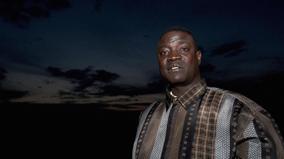New release
Coming
None
Everybody's Children
2008
51 min
Leaving soon
Monika Delmos's documentary captures a year in the life of two teenage refugees, Joyce and Sallieu, who have left their own countries to make a new life in Ontario. Joyce, 17, left the Democratic Republic of Congo to avoid being forced into prostitution by her family. Sallieu, 16, had witnessed the murder of his mother as a young boy in wartorn Sierra Leone. Delmos follows them as they bear the normal pressures of being a teenager while simultaneously undergoing the refugee application process. She shows how the guidance and support of a handful of people make a real difference in …

Details
Monika Delmos's documentary captures a year in the life of two teenage refugees, Joyce and Sallieu, who have left their own countries to make a new life in Ontario. Joyce, 17, left the Democratic Republic of Congo to avoid being forced into prostitution by her family. Sallieu, 16, had witnessed the murder of his mother as a young boy in wartorn Sierra Leone.
Delmos follows them as they bear the normal pressures of being a teenager while simultaneously undergoing the refugee application process. She shows how the guidance and support of a handful of people make a real difference in the day-to-day lives of these children.
Delmos follows them as they bear the normal pressures of being a teenager while simultaneously undergoing the refugee application process. She shows how the guidance and support of a handful of people make a real difference in the day-to-day lives of these children.
-
directorMonika Delmos
-
producerAnita Lee
-
cinematographyStanislaw Barua
-
editorLawrence Jackman
-
music composerAlex Khaskin
-
location soundChris Miller
-
additional cinematographyAlen MilicIoana Vasile
-
additional soundPhil BrouwerIan ChallisDavid K. GrantGary OppenheimerMarek PiekarzewskiJeff Reyes
-
assistant editorTera Goldblatt
-
translatorVanessa EmamGenevieve Trilling
-
sound editorFred BrennanEd Douglas
-
assistant sound editorSue Fawcett
-
re-recording mixerAllen Ormerod
-
online editorAndrew Mandziuk
-
production supervisorMark Wilson
-
production coordinatorCorinne HermanChristine Kleckner
-
technical coordinatorBranden Bratuhin
-
marketing managerSue ManderNataly Spudic
-
administration coordinatorJoanne Forrest
-
production secretaryRenée Lottridge
-
technical internChristopher LoganTrevor Schellinck
-
executive producerSilva Basmajian
Education
Ages 14 to 17
School subjects
In a discussion with the class, ask students what they about the government granting residency status but then making these refugees pay $550 for their application. Do they think it's fair? Is it sending a message to the refugees that even though Canada has allowed them to stay, they cannot become a burden on the Canadian government and taxpayers? Explore more about refuges in Canada at this website.

















